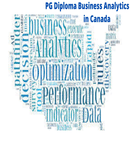Masters in Economics in Canada is a 2-year graduate degree program for international students. The program offers students with immense knowledge related to Economics and Mathematics. Candidates with a 4-year bachelor’s degree in Economics or equivalent and a minimum GPA of 3.0 out of 4.0 (83-86%) are eligible to apply to this program at the universities in Canada. International students need a GRE score of 305 or above for admission to MS in Economics in Canada.
The annual tuition cost of Masters in Economics in Canada ranges from 22,500 to 29,000 CAD (13.6 to 17.6 lakhs INR). After completing Masters in Economics in Canada, individuals can expect to earn an average annual income of 69,000 CAD (41.50 lakhs INR). Amazon, Statistics Canada, Deloitte, Google, Golman Sachs, Scotiabank are some of the popular employers recruiting MS in Economics graduates in Canada.
Check: High Paying Jobs in Canada
Highlights
| Courses Available | Master of Financial Economics (MFE) | MA in Economics | M.Sc. Agricultural Economics | MA in Finance and Economics |
| Course Type | Full-time |
| Program Duration | 2 years |
| Eligibility Criteria | 4-year Bachelor’s degree in Economics or equivalent | GPA of at least 3.0 out of 4.0 (83-86%) |
| English Proficiency Requirements | IELTS: 7.5 (6.0 in each band) | TOEFL iBT: 86 to 110 overall |
| Entrance Exam | GRE score: Verbal: 160 | Quant: 155 |
| Average Annual Tuition Fees | 16,800-40,000 CAD (10.23 to 24.37 lakhs INR) |
| Average Annual Salary Range | 56,400 to 119,200 CAD (34.22 to 72.32 lakhs INR) |
Top Universities for Masters in Economics in Canada
Some of the top universities for Masters in Economics in Canada and their respective application deadlines are listed below:
| University | Program | Application Deadlines | Annual Tuition Fees (CAD) |
|---|---|---|---|
| University of Toronto | Master of Financial Economics (MFE) | 10 January 2023 | 29,000 |
| The University of Alberta | MA in Finance and Economics | 31 January 2023 (Fall Term) | 26,600 |
| McGill University | MA in Economics | M.Sc. Agricultural Economics | 15 January 2023 (applications closed) | 27,010 |
| The University of British Columbia | MA in Economics | 31 December 2023 | 27,000 |
| University de Montreal | Masters in Economics | 1 February 2023 (Fall Term) | 40,023 |
| McMaster University | MA in Economics | 15 January 2023 (applications closed) | 18,010 |
| The University of Waterloo | MA in Economics | 1 February 2023 | 22,500 |
| Western University | Master of Financial Economics (MFE) | 15 January 2023 (applications closed) | 23,100 |
| University of Calgary | MA in Economics | 15 January 2023 (applications closed) | 14,700 |
| Queen’s University at Kingston | MA in Economics | 1 February 2023 | 23,393 |
| Dalhousie University | MA in Economics | 1 March 2023 (September term) | 31 December 2022 (For scholarship) | 16,860 |
Why Study Masters in Economics in Canada?
- 14 Canadian universities that offer Masters in Economics in Canada are ranked in the top 500 universities of the world and 3 are under the top 50, as per the QS WUR, 2023.
- Academic excellence in Canada is combined with the high standard of living, safety, quality of food, and ambiance.
- One can either pursue higher education or start working and earn average annual salaries up to 119,200 CAD (34.22 to 72.32 lakhs INR) after Masters in Economics in Canada.
Explore: Part Time Jobs in Canada
Masters in Economics in Canada: Specializations and Subjects
It is always beneficial for students, both domestic and international, to check the specialisation and subjects available along/in their preferred course. Following are the specialisations and some of the popular subjects for Master in Economics in Canada:
Specialisations
- Master of Financial Economics (MFA)
- M.Sc. Agricultural Economics
- MA in Finance and Economics
- MA in Economics
Subjects:
- Microeconomics
- Econometrics
- Quantitative Methods
- Introduction to Finance
- Fixed-income securities
- Financial Theory
- Risk Management - Principles and Practices
Masters in Economics in Canada Admissions
Masters in Economics in Canada offers merit-based online admission to students from all around the world. Admission to the program is widely offered in the Fall term. Candidates possessing an undergraduate degree in Economics or equivalent can apply at the earliest. The details of admission and eligibility criteria for the program are provided below.
Masters in Economics in Canada: Eligibility Criteria
The eligibility criteria for Master in Economics in Canada vary with the college/university. However, it is possible to sum up all the entry requirements and present them as:
- Degree Qualification: Successful completion of a Bachelor’s degree in Economics or a relevant stream with a minimum aggregate of 75% from a recognized university.
- Standardised Test Scores: Standardised test scores are often not required if you have completed a bachelor's in Economics but still submitting a GRE score of 305 (160 in Verbal and 155 in Quantitative Reasoning) adds much value to the application. A minimum GMAT score of 600 is also acceptable.
- Proof of English Proficiency: candidates with an IELTS score ranging from 6.5 to 7.5 overall or a TOEFL iBT score ranging from 86 to 110 are acceptable.
Masters in Economics in Canada: Admission Requirements
The following table shows the admission requirements for studying Master in Economics in Canada:
| University | Eligibility Criteria | Minimum IELTS Score |
|---|---|---|
| University of Toronto | 4-year Bachelor’s degree in Economics or equivalent | Minimum GPA of 3.0 out of 4.0 or 75% aggregate | IELTS: 7.5 (with no less than 6.5 in each band) | TOEFL: 92 (at least 21 in each round) |
| The University of Alberta | Bachelor’s degree in Economics or equivalent | GPA of at least 3.5 out of 4 (60% aggregate for Indian candidates) from a recognized university | IELTS: 7.0 (with no less than 6.5 in each band) | TOEFL: 110 |
| McGill University | BA in Economics or relevant stream with a minimum GPA of 3.2 out of 4 or grade B with mathematics as a subject in the qualifying year | IELTS: 6.5 (with no less than 6.0 in each band) | TOEFL: 86 (at least 20 in each band) |
| The University of British Columbia | Bachelor’s degree in Economics or relevant stream with a minimum overall aggregate of 76% from a recognized university | IELTS: 6.5 (with no less than 6.0 in each band) | TOEFL: 93 (at least 22 in each band) |
| University de Montreal | Bachelor’s degree in Economics with a minimum GPA of at least 3.5 out of 4.3 or equivalent from a recognized university | – |
| McMaster University | Honours BA in Economics or a 4-year course of study in Economics | At least B+ average from a recognized institution | IELTS: 7.0 (with no less than 6.5 in each band) | TOEFL: 92 |
| University of Waterloo | Honours Bachelor’s degree in Economics or equivalent | Minimum aggregate of 75% from a recognized university | IELTS: 7.0 (with no less than 6.5 in each band) | TOEFL: 90 (at least 25 in each band) |
| Western University | BA or 4-year Bachelor’s degree in Economics, Business (Finance), Math, Science, or Engineering | Minimum overall score of 78% from a recognized university. | IELTS: 6.0 (with no less than 5.5 in each band) | TOEFL: 86 (at least 20 in each band) |
| University of Calgary | Bachelor’s in Economics or equivalent with a minimum GPA of 3.0 out of 4.0 (83-86%) | IELTS: 6.5 (with no less than 6.0 in each band) | TOEFL: 86 (at least 20 in each band) |
| Queen’s University at Kingston | Successful completion of Bachelor’s degree in Economics or equivalent with B+ grade in the 3rd or 4th year from a recognized university | IELTS: 6.5 (with 6.0 in all sections) | TOEFL iBT: 88 |
| Dalhousie University | BA/BSc in Economics (not Business) from a recognized university | 75% aggregate or 3.3 GPA on the sale of 4.3. | IELTS: 6.5 (with no less than 6.0 in each band) | TOEFL: 90 (at least 20 in each band) |
Candidates who fulfil the above-mentioned entry requirements will be required to submit the following documents either during or after the application:
- Original or certified copies of academic transcripts
- A 1-page Statement of Interest
- 2 academic LOR and 1 professional LOR
- An updated Curriculum Vitae (CV)
- Submission of application fees
- A valid passport
- A Canadian students visa
- Passport size photographs and digital signature of the applicant
Masters in Economics in Canada Fees
The average annual tuition fees for Masters in Economics in Canada is as follow:

| University | Annual Tuition Fees (CAD) | Equivalent Fees for Indian Students (INR) |
|---|---|---|
| University of Toronto | 29,000 | 17.6 Lakhs |
| The University of Alberta | 26,600 | 16.2 Lakhs |
| McGill University | 27,010 | 16.45 lakhs |
| The University of British Columbia | 27,000 | 16.4 Lakhs |
| University de Montreal | 40,023 | 24.09 lakhs |
| McMaster University | 18,010 | 10.84 lakhs |
| The University of Waterloo | 22,500 | 13.6 Lakhs |
| The University of Western Ontario | 23,100 | 14 Lakhs |
| University of Calgary | 14,700 | 8.84 lakhs |
| Queen’s University at Kingston | 23,393 | 14.08 lakhs |
| Dalhousie University | 16,860 | 10.14 lakhs |
Cost of Living in Canada
The following are the regular expenses that a student makes while studying in Canada:
| Expense Type | Cost Per Month (CAD) | Monthly Cost Equivalent (INR) |
|---|---|---|
| Private Apartment | 400 to 1,500 | 24,200 to 90,700 |
| Shared Rental | 250 to 700 | 15,000 to 42,300 |
| Groceries | 1,200 to 1,500 | 72,500 to 90,700 |
| Gas and Electricity | 200 | 12,000 |
| Phone and Internet | 50 to 76 | 3,000 to 4,600 |
| Public Transport | 100 to 150 | 6,000 to 9,000 |

Masters in Economics in Canada Scholarships
Canada stands among the countries that are costlier as compared to India. International candidates look forward to minimising their cost of study by funding their education with several popular scholarships in Canada offered by the universities and external organisations. Following are some of the scholarships for international students in Canada:
| Scholarships | Eligibility | Award (CAD) |
|---|---|---|
| International Entrance Scholarships | High academic qualification (85% and 6.5+ IELTS score) | 2,000 for first two semesters |
| Ontario Graduate Scholarship | Canadian students or PR students studying at the University of Ontario | 5,000 per session |
| Mackenzie King Memorial Scholarship | Candidates studying a graduate degree program from a recognized university in Canada | 12,000 to 13,500 |
Wondering how to get a scholarship to study in Canada from India?
Watch the video below to find an answer to all your questions and clear your doubts:
Masters in Economics in Canada Placements
After pursuing Masters in Economics in Canada, a candidate can opt to become Economist, Research Analyst, or even an Executive Assistant. In this regard, the following table represents shows the expected annual income for the respective jobs:
| Job Title | Average Annual Salary (CAD) | Salary Equivalent (INR) |
|---|---|---|
| Economist | 71,200 | 43.19 lakhs |
| Pricing Analyst | 58,200 | 35.3 lakhs |
| Research Analyst | 58,500 | 35.5 lakhs |
| Economic Analyst | 70,800 | 43.96 lakhs |
| Data Analyst | 56,400 | 34.22 lakhs |
| Research Director | 119,200 | 72.32 lakhs |
Masters in Economics in Canada Return on Investment
Masters in Economics in Canada offers an excellent return on investment. After completing Masters in Economics in Canada, graduates often receive a higher amount of annual salary, as compared to the tuition fees. A comparison between the university-specific tuition fee and graduate salaries:

| University | Annual Tuition Fees (CAD) | Graduate Salary (INR) |
|---|---|---|
| University of Toronto | 29,000 | 97,000 |
| The University of Alberta | 25,500 | 69,000 |
| McGill University | 19,154 | 86,000 |
| The University of British Columbia | 27,000 | 65,000 |
| University de Montreal | 40,023 | 65,000 |
| McMaster University | 18,010 | 61,000 |
| The University of Waterloo | 22,500 | 67,000 |
| The University of Western Ontario | 23,100 | 62,000 |
| University of Calgary | 14,700 | 70,000 |
*The above-mentioned salaries are the expected values. The real annual incomes may vary.
Masters in Economics in Canada: College Comparison
Masters in Economics in Canada is offered by several top-ranked universities. The following table compares and contrasts the top 3 universities for a Masters in Economics in Canada:
| Particulars | McGill University | University of Toronto | University of British Columbia |
|---|---|---|---|
| QS Rankings | #31 in the world | #34 in the world | #3 in Canada #47 in the world |
| Tuition Fee (CAD) | – | 29,000 | 27,000 |
| GPA | 3.2 out of 4.0 | 3.0 out of 4.0 or 75% aggregate | 76% aggregate |
| TOEFL iBT Score | 86 | 92 | 93 |
| Annual Fees | 19,154 | 29,000 | 27,000 |
| Average Graduate Salary | 76,300 CAD (46.3 Lakh INR) | 78,400 CAD (47.5 Lakh INR) | 89,000 CAD (54 Lakh INR) |
Masters in Economics in Canada v/s Masters in Economics in UK
| Parameter | Masters in Economics in UK | Masters in Economics in Canada |
|---|---|---|
| Duration | 1-2 years | 2 years |
| Average Tuition Fees | 18,000 GBP to 34,000 GBP (17.85 lakhs - 32.34 lakhs INR)) | 16,800-40,000 CAD (10.23 to 24.37 lakhs INR) |
| Cost of Living | 1,120 GBP (1.11 lakhs INR) | 1,987 CAD (1.19 lakhs INR) |
| Percentage Required | 60-70% | 83-86% |
| Accepted GMAT/GRE Scores | GMAT: 500+ | GRE Quant: 155 | GRE Quant: 155 | GRE Verbal: 160 |
| English Language Proficiency Tests | IELTS: 6.5 - 7.0 | TOEFL: 90 - 100 | IELTS: 7.5 | TOEFL: 100 |
| Average Salary | 39,000 GBP (37.1 lakhs INR) | 56,400 to 119,200 CAD (34.22 to 72.32 lakhs INR) |
Explore: Masters in Economics in UK
Pursuing Masters in Economics in Canada is a great plan for those who wish to build a strong career in Economics. It allows one to either go for higher studies or start working as an Economist or Data Analyst. Supported by the high quality of education, Masters in Economics graduates in Canada are in demand across several well-established companies.
FAQs
Ques. Is Masters in Economics in Canada a good idea?
Ans. For students having a firm grip on Economics and Mathematics, Masters in Economics in Canada is highly recommendable. It will allow them to earn a name for themselves by working in well-known companies and earning a hefty amount of income every year.
Ques. What can I do after my Master in Economics in Canada?
Ans. After the completion of Masters in Economics in Canada, an individual can work as an Economist, Consultant, Statistician, Economic Analyst, Data Scientist, Stock Market Specialist, etc.
Ques. Which skills are required to become a good economist after Masters in Economics in Canada?
Ans. While pursuing Masters in Economics in Canada, students acquire the following traits that they may apply when working as Economists:-
- Analytical Skills
- Communication Skills
- Math Skills
- Critical thinking abilities
- Writing Skills
Ques. Which course is best after a Masters in Economics in Canada?
Asn. Individuals who wish to study even after completing Masters in Economics in Canada can enrol the selves into:-
- PG certificate in Entrepreneurship
- PF Diploma in Global Banking and Economics
- MS in Mathematics
- MBA in Community Economic Development
Ques4. What is the minimum aggregate to study Masters in Economics in Canada?
Ans. The minimum eligibility criteria for applying to a university for a Masters in Economics in Canada is to have a Bachelor’s degree in Economics or a relevant stream with a minimum aggregate of 75% or 3.0 GPA out of 4.0.
![University of Toronto [U of T]](https://static.zollege.in/public/college_data/images/studyabroad/logos/college_104_25-12:44_University_of_Toronto-logo-2417C8AF32-seeklogo.jpeg?tr=w-50,h-50,c-force?tr=h-40,w-35,c-force)
![The University of British Columbia [Ubc]](https://static.zollege.in/public/college_data/images/studyabroad/logos/college_64_25-11:13_Capture.jpeg?tr=w-50,h-50,c-force?tr=h-40,w-35,c-force)
![McGill University [Mcgill]](https://static.zollege.in/public/college_data/images/studyabroad/logos/college_39_24-17:26_macgill.jpeg?tr=w-50,h-50,c-force?tr=h-40,w-35,c-force)
![University of Montreal [U de M]](https://static.zollege.in/public/college_data/images/studyabroad/logos/college_71_24-17:54_udem.jpeg?tr=w-50,h-50,c-force?tr=h-40,w-35,c-force)
![Simon Fraser University [Sfu]](https://static.zollege.in/public/college_data/images/studyabroad/logos/college_54_25-11:01_Capture.jpeg?tr=w-50,h-50,c-force?tr=h-40,w-35,c-force)
![University of Alberta [UAlberta]](https://static.zollege.in/public/college_data/images/studyabroad/logos/college_9_24-17:46_alberta-.jpeg?tr=w-50,h-50,c-force?tr=h-40,w-35,c-force)







1606454348.png?tr=w-305,h-145,c-force?tr=h-130,w-130,c-force)

1607424314.png?tr=w-305,h-145,c-force?tr=h-130,w-130,c-force)

